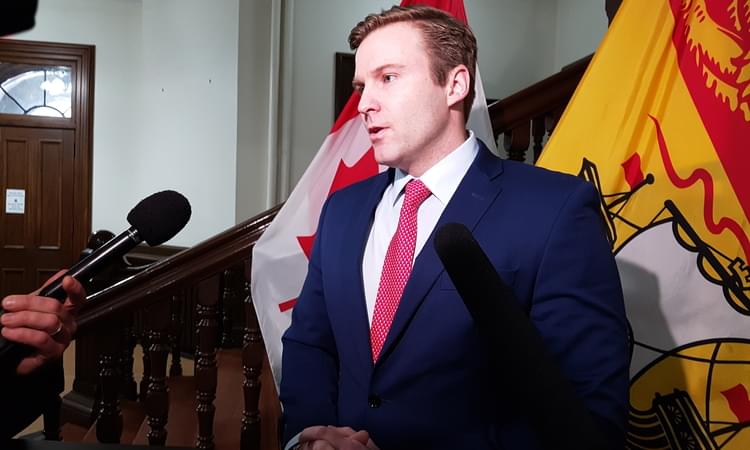EXCLUSIVE: House sittings down sharply under Gallant – Telegraph Journal – 21 May 2018
“Green Party leader David Coon questioned whether the increase in committee days was meaningful.”
Article by: John Chilibeck
FREDERICTON • New Brunswick’s Liberal government has cut back sharply on house sittings and question period since coming to power four years ago, a move opponents call undemocratic.
But Premier Brian Gallant says much of the debate in the legislature has shifted to the committee room, a process he describes as more focused and efficient in fulfilling his government’s agenda.
“We have had committee work done during the weeks in which there were no question periods and during those committee meetings we would see even more detailed question periods,” Gallant said in a recent interview.
“It wasn’t the official question period, but it was in fact a time for the opposition and all MLAs to voice their opinions, ask questions and debate the important issues of economic growth, strengthening education and improving healthcare.”
The Brunswick News analysis shows since the Gallant government took power in 2014, the house has been in full session 188 days, a figure that’s not expected to change before September’s provincial election.
That’s 50 fewer than the total number of sitting days under David Alward’s Tory regime in the previous four years and 88 fewer than under Shawn Graham’s Liberal government in the four years before that.
However, committee time has gone up markedly under Gallant – about 230 days devoted to meetings and public hearings over his tenure, roughly one-third more than under Alward or Graham.
Question period allows opposition MLAs to grill the premier and other cabinet ministers about the most important issues of the day. By contrast, government backbenchers and opposition MLAs do most committee work. Liberals typically form the majority and control the agenda.
“In the legislature, the opposition can question and the public can find out what’s happening,” said Tory party president Rick Lafrance. “So I look at it and ask, are New Brunswickers okay with our house sitting those minimum amount of days while our province is in financial crisis?”
Green Party leader David Coon questioned whether the increase in committee days was meaningful.
In particular, he noted the public accounts committee, which examines government finances, had met far fewer times under Gallant than under previous governments, a fact confirmed by the Hansard office.
“What’s going on here is a wish to minimize public and political accountability,” he said. “There are fewer opportunities for the public to hear the premier or cabinet members respond to issues that are important to them.”
The limited house sittings also means private member’s bills, like the ones Coon sponsors, die on the order paper before they’re debated. And he said during the committee stage of bills, both Liberal and Tory governments have routinely refused to invite witnesses to testify or consider the opposition’s amendments.
A prominent Fredericton political scientist described the reduction in house sittings as another example of power being concentrated in the premier’s office, part of a broad trend in Canadian politics over the last 50 years.
“If you live in an environment in which party identification is strong, and party discipline is strong, then every vote in the legislature is a fait accompli anyway,” said Tom Bateman, a St. Thomas University professor.
“The debates have a kind of fictional character about them, they are contrived and rote, the usual barbs are traded and so on. The general sense is the chambers are atrophying. And the numbers fit the long-term trend.”
Bateman said in principle, doing more committee work was “a good thing” because the meetings are supposed to be less partisan and more deliberative, and should result in better law making and scrutiny of government operations.
“But I don’t think you have to hold fewer sitting days to do more committee work.”
-with files from Barbara Simpson
